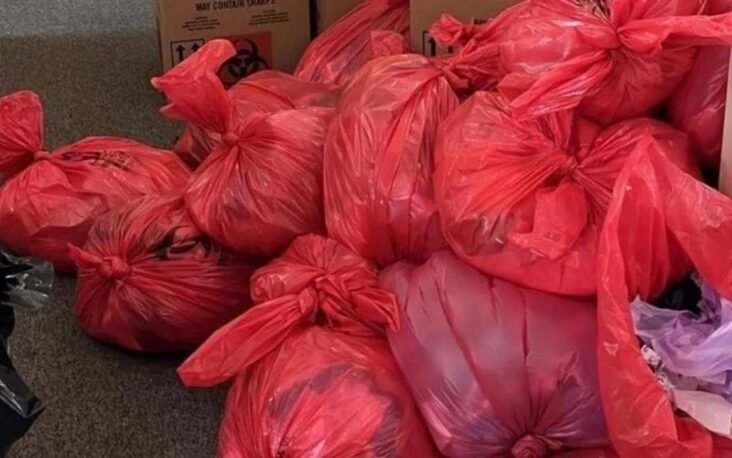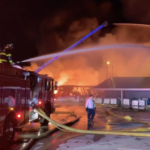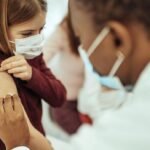
An Illinois-based coronavirus testing company with at least 13 sites in Washington, faked or delayed test results (or provided none at all), lied to patients and failed to properly store test samples, according to a lawsuit filed Monday by Washington state Attorney General Bob Ferguson.
The lawsuit, filed in King County Superior Court, describes how the company, Center for COVID Control, expanded to about 300 U.S. locations and allegedly took advantage of residents at a time when frequent testing was in high demand as a “critical tool in the fight against COVID-19.”
“Center for COVID Control contributed to the spread of COVID-19 when it provided false negative results,” Ferguson said in a statement. “These sham testing centers threatened the health and safety of our communities. They must be held accountable.”
The suit also alleges the Center for COVID Control stored tests in garbage bags for more than a week, rather than properly refrigerating them; backdated sample-collection dates so stale samples would still be processed; and instructed its employees to “lie to patients on a daily basis” when Washingtonians asked about delayed results.
Ferguson also named Akbar Syed, Aleya Siyaj and Doctors Clinical Laboratory in the lawsuit.
Syed and Siyaj, who are married, co-founded the testing company and live in Illinois, according to the suit. Doctors Clinical Laboratory is also based in Illinois and tests samples collected in Washington, though it’s not registered with the Washington Secretary of State’s Office, the suit says.
The Center for COVID Control did not respond to a request for comment Monday.
The company had been operating in Washington since October and its services had begun increasing in popularity particularly after the rapid spread of the omicron variant prompted a rise in demand for tests and forced health care systems to start limiting appointments.
Locations in Seattle, Bellevue, Tacoma, Lakewood, University Place, Auburn, Lynnwood, Everett, Port Orchard and Yakima promised free test results within 15 minutes for a rapid test and within 48 hours for a more sensitive PCR test.
For several weeks, however, customers throughout the country have been complaining about delayed or missing test results, leading health authorities in several states, including California and Illinois, to launch investigations into the company.
In Lakewood, city officials issued a stop-work order at the company’s site in mid-January after receiving complaints and finding it was operating without a business license, “among other concerns,” Lakewood city officials said.
According to Ferguson’s office, the company didn’t have a license to operate a business anywhere in Washington except Yakima.
Ferguson’s office plans to file a motion for preliminary injunction “soon,” the statement said.
The company had halted operations earlier this month, citing an “unprecedented recent demand for testing,” but said it planned to reopen once “additional staff” had been trained.
One former Illinois-based employee of the Center for COVID Control reported to Ferguson’s office that they quit after seeing that “trash bags of tests piled up and (their) team was instructed to lie to patients on a daily basis,” the statement said.
As the company fell further behind on processing samples, the statement said, they were “flooded” with calls asking about results — leading to hourslong wait times. Employees were then told to tell patients to expect results in 24 hours, even if there was no information about the particular sample, or that their results were inconclusive, which would require the patient to get another test.
As of Monday, the company had also billed the federal government $124 million for tests for “uninsured” patients, the statement said.
“The company frequently marked patients as ‘uninsured,’ even if they were insured,” Ferguson’s office said. “Employees were instructed to mark patients as ‘uninsured’ if the patient didn’t provide their insurance information by the time of testing or if their insurance company wasn’t listed on the company’s data entry form.”
Regulation of coronavirus testing sites in Washington remains a bit muddled. Earlier this month, Public Health — Seattle & King County said in a statement that while it was aware of complaints against the Center for COVID Control sites in the county, local public health agencies didn’t have “regulatory authority.” The department instead said it would forward complaints to the state Department of Health and Ferguson’s office.
Brionna Aho, spokesperson for the attorney general’s office, said Monday that jurisdiction depends on the “exact nature of the issue(s).”
“The safest bet if people have concerns is to file complaints with our office, DOH and the Office of the Inspector General,” Aho wrote in an email.
Barbara Barronian, 68, felt uneasy about the Center for COVID Control after visiting its University Place site at the end of November, she said on Monday.
She had tested negative with an at-home test, but was feeling sick and wanted to get tested again.
“I Googled ‘COVID test sites near me’ and that one was just about a mile up the street,” Barronian said. “It was one of the first that popped up … and didn’t require appointments.”
When she arrived, however, the place “seemed a little sketchy,” she said.
“It was an empty storefront and there was a banner posted on the window, but it didn’t identify the name of the company,” Barronian said. “… Inside, it was empty except for a folding table with some supplies on it and two chairs.”
Barronian said she was also surprised that when she asked the site worker how she should declare her Medicare coverage, she was told her to write “no insurance.”
Barronian requested both a rapid and PCR test. Her rapid test result came back within 15 minutes — she was told it was negative. But nearly two months later, she has yet to get her PCR test results, even though she’s made several calls to the company and visited the University Place site again looking for answers.
“At best, they seemed incompetent,” she said. “But they’re putting the public at jeopardy, having all of us walking around infecting each other.”
The lawsuit asks the court to order the Center for COVID Control to pay civil penalties of up to $12,500 per violation of the Consumer Protection Act and relinquish any profits the company made from its “unlawful conduct,” in addition to closing all locations.



